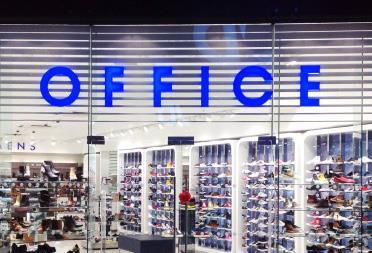Retailers should start their investment plans with back-office technology and recruitment, rather than prioritising front-end functions.
In a fast-moving industry such as retail, traders must move quicker than ever in order to keep up with changing demands.
While many focus on front-end investments to improve experience and impress the consumer, what they also need to consider is how important the back-office is in delivering that, because a good front-end cannot function without strong support from behind the scene
"New technologies can help in empowering a firm to plot their finance and human resources effectively, which in turn can benefit the front-of-house functions."
By developing back-office HR, finance and supply chain, you can ensure there is both the talent and the capital required to embrace new technologies, as well as being agile enough to plan and pivot according to changing retail conditions.
Transformation is enabled by technology
New technologies can help in empowering a firm to plot their finance and human resources effectively, which in turn can benefit the front-of-house functions.
Like HR, finance also feels the pressures of the retail industry. With only so much budget to go round, financial systems are often overlooked in favour of investing in the things that drive revenue, such as new experiences, stores or product lines.
Similarly, it can be costly, time consuming, and risky to replace legacy tools, and upgrade finance systems.
As a result, new finance applications are often added ad hoc, and stitched together with existing solutions, meaning systems can be more expensive to maintain; deliver lower-quality information; and limit the ability to predict, budget and plan effectively.
Considering these challenges, it makes clear the emphasis needed on the back-end systems to ensure the smooth running of any enterprise.
In transforming the quality of the support functions, there is the opportunity to improve the class of planning and budgeting, as well as develop employee experience, and present retention of highly skilled professionals. In turn, this can even improve service delivery in retailers.
Invest in people
As the roles and processes in retail shift to better accommodate the digital demands we face, firms must consider the need for a broader range of skills in their employees; ranging from traditional store staff, to coders, designers and user experience specialists who power the essential ecommerce platforms.
In order to fill these roles at the right level and in the right timeframe, there needs to be planning regarding recruitment and on-boarding.
Many retailers report extensive skills gaps – suggesting that challenges stretch into training and talent development as well.
Even for the organisations that attract and retain top talent, there is growing pressure to provide staff with a high level of service, as you would give a customer.
Expectations of employers are growing, and if the workforce do not get the experiences, technologies and tools they desire, staff turnover is likely to rise.
So in order to stay ahead of the digital transformation curve, retailers need to get the basics right first. Invest in the areas that will help you deliver your multichannel purpose operationally, before investing in the front-end bells and whistles.
Antony Welfare is innovation strategy director at Oracle



























